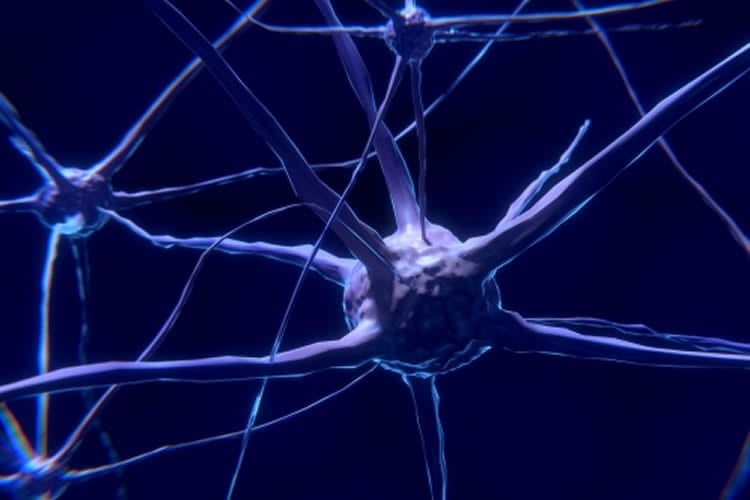Summary: Researchers report alpha 7 nicotinic acetylcholine receptors enhance communication between the hippocampus and frontal cortex, where as a4b7 nicotinic receptors decrease the communication. The findings may have implications for the way stimulation of acetylcholine can be used to treat dementia.
Source: University of Bristol.
A new University of Bristol study, which identifies how acetylcholine impacts learning and memory by acting at different receptors, could prove significant in the drive to develop more targeted and effective therapies for dementia.
Currently, the main treatments for Alzheimer’s disease are drugs that increase levels of acetylcholine in the brain. The University of Bristol paper, published today in Cell Reports, describes the role two main types of nicotinic receptor (α7 and α4β2 receptors) play in long-term memory retrieval and encoding – and the impact of acetylcholine on these receptors.
Nicotinic receptors, named after their sensitivity to nicotine, are expressed in the human and rodent brain where they are naturally activated by the neurotransmitter acetylcholine. Activation of nicotinic receptors by acetylcholine in the frontal cortex of the brain has previously been shown to be essential for functions such as attention and working memory.
Professor of Cellular Neuroscience, Zafar Bashir, and PHD student, Marie Sabec, in the School of Physiology, Pharmacology and Neuroscience, have demonstrated for the first time that both types of nicotinic receptor are essential for long-term associative recognition in rats.
What’s more, the study also found that each nicotinic receptor subtype was responsible for distinct aspects of memory. The initial encoding of information (“learning”) was dependent on the α7 nicotinic receptor, and subsequent memory retrieval (“remembering”) relied on the α4β2 receptor.

Prof. Bashir commented on the findings:
“Learning is thought to rely on changes in the strength of communication between neurons. In this study we have shown that the α7 nicotinic receptors enhance communication between the hippocampus and frontal cortex but α4β2 nicotinic receptors decrease communication between these regions. Therefore, acetylcholine acting on different subtypes of nicotinic receptor in the frontal brain can enhance or depress neural communication for the learning and remembering of long-term memory, respectively.
“These findings could have significant implications for the way stimulation of acetylcholine is used to treat Alzheimer’s. If drugs can be developed to target the individual nicotinic receptors, responsible for different aspects of long-term memory, we could see much more targeted and effective therapies for dementia.”
Source: Shona East – University of Bristol
Publisher: Organized by NeuroscienceNews.com.
Image Source: NeuroscienceNews.com image is credited to the researchers.
Original Research: Open access research for “Nicotinic Acetylcholine Receptors Control Encoding and Retrieval of Associative Recognition Memory through Plasticity in the Medial Prefrontal Cortex” by Marie H. Sabec, Susan Wonnacott, E. Clea Warburton, Zafar I. Bashir in Cell Reports. Published online March 27 2018.
doi:10.1148/radiol.2018170059
[cbtabs][cbtab title=”MLA”]University of Bristol “Nicotinic Receptor and Long-Term Memory Study Paves Way for Targeted Dementia Therapy.” NeuroscienceNews. NeuroscienceNews, 27 March 2018.
<https://neurosciencenews.com/nictocine-receptor-memory-dementia-8694/>.[/cbtab][cbtab title=”APA”]University of Bristol (2018, March 27). Nicotinic Receptor and Long-Term Memory Study Paves Way for Targeted Dementia Therapy. NeuroscienceNews. Retrieved March 27, 2018 from https://neurosciencenews.com/nictocine-receptor-memory-dementia-8694/[/cbtab][cbtab title=”Chicago”]University of Bristol “Nicotinic Receptor and Long-Term Memory Study Paves Way for Targeted Dementia Therapy.” https://neurosciencenews.com/nictocine-receptor-memory-dementia-8694/ (accessed March 27, 2018).[/cbtab][/cbtabs]
Abstract
Nicotinic Acetylcholine Receptors Control Encoding and Retrieval of Associative Recognition Memory through Plasticity in the Medial Prefrontal Cortex
Highlights
•Prefrontal α7 nAChRs are critical for encoding of associative recognition memory
•Prefrontal α4β2 nAChRs are required for retrieval of associative recognition memory
•α7 and α4β2 nAChRs gate bidirectional plasticity at hippocampal-prefrontal synapses
•Bidirectional plasticity underlies the role of nAChR in associative recognition
Summary
Nicotinic acetylcholine receptors (nAChRs) expressed in the medial prefrontal cortex have critical roles in cognitive function. However, whether nAChRs are required for associative recognition memory and the mechanisms by which nAChRs may contribute to mnemonic processing are not known. We demonstrate that nAChRs in the prefrontal cortex exhibit subtype-specific roles in associative memory encoding and retrieval. We present evidence that these separate roles of nAChRs may rely on bidirectional modulation of plasticity at synaptic inputs to the prefrontal cortex that are essential for associative recognition memory.






